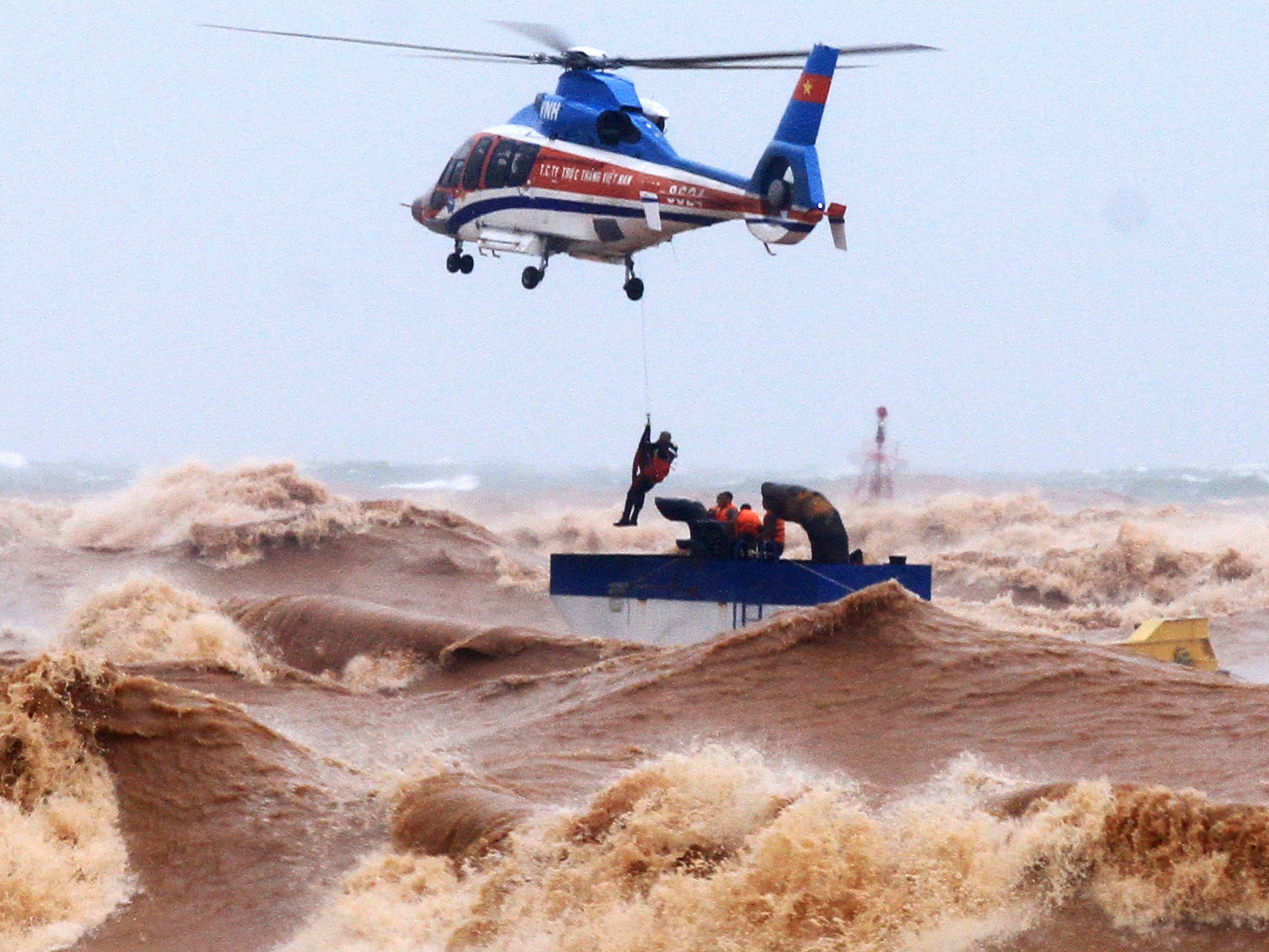Climate crisis: Extreme weather driving rise in major disaster events, UN report finds
Number of major floods has more than doubled over last 20 years, report warns

Your support helps us to tell the story
From reproductive rights to climate change to Big Tech, The Independent is on the ground when the story is developing. Whether it's investigating the financials of Elon Musk's pro-Trump PAC or producing our latest documentary, 'The A Word', which shines a light on the American women fighting for reproductive rights, we know how important it is to parse out the facts from the messaging.
At such a critical moment in US history, we need reporters on the ground. Your donation allows us to keep sending journalists to speak to both sides of the story.
The Independent is trusted by Americans across the entire political spectrum. And unlike many other quality news outlets, we choose not to lock Americans out of our reporting and analysis with paywalls. We believe quality journalism should be available to everyone, paid for by those who can afford it.
Your support makes all the difference.Disasters caused by extreme weather events have surged in number over recent decades, causing suffering and hardship on a huge scale, with the climate crisis largely responsible for the rise, a UN report has found.
Between 2000 and 2019, there were 7,348 major recorded disaster events which claimed 1.23 million lives, affecting 4.2 billion people – many on more than one occasion – and resulting in about $3 trillion (£2.3 trillion) in global economic losses, the report by the United Nations Office for Disaster Risk Reduction (UNDRR) found.
The figures represent a sharp increase over the previous 20 year period. Between 1980 and 1999, 4,212 disasters were linked to natural hazards worldwide claiming approximately 1.19 million lives and affecting 3.25 billion people resulting in around $1.6 trillion in economic losses.
The report was commissioned to mark the International Day for Disaster Risk Reduction on 13 October, and the UNDRR said the findings confirm “how extreme weather events have come to dominate the disaster landscape in the 21st century.”
The authors of the report said the rising prevalence and scale of disasters is explained by a rise in the number of climate-related disasters including extreme weather events.
This went up from 3,656 climate-related events between 1980-1999 to 6,681 climate-related disasters in the period 2000-2019.
Mami Mizutori, the UN secretary-general’s special representative for disaster risk reduction, said: “Coherence between climate change adaptation and disaster risk reduction is a defining issue for disaster risk governance in the 20th century. Adaptation to climate change is central to disaster risk management at national and local level.
“No country on earth is immune to the rise in climate-related disasters.”
She added: “It is important that we have an integrated approach which recognises the increasingly systemic nature of risk and how climate interacts with other drivers of risk including poverty, rapid urbanisation, environmental degradation and land use.”
The report found over the last 20 years the number of major floods more than doubled, from 1,389 to 3,254, while the incidence of storms grew from 1,457 to 2,034.
Floods and storms were the most prevalent events.
The report also records major increases in other categories including drought, wildfires and extreme temperature events.
There has also been a rise in geo-physical events including earthquakes and tsunamis which have killed more people than any of the other natural hazards the report assessed.
The report comes after the planet’s hottest September on record. The month was 0.63C above the average September temperatures of the standard 30-year climatological reference period, according to the EU’s Copernicus satellite monitoring programme.
Meanwhile, Arctic sea ice in September was the second lowest recorded, after September 2012.
The UN is calling on countries to work together and honour the international agreements they are party to.
Ms Mizutori said: “Good disaster risk governance depends on political leadership and delivery on the promises made when the Paris agreement and the Sendai Framework for Disaster Risk Reduction were adopted five years ago.”




Join our commenting forum
Join thought-provoking conversations, follow other Independent readers and see their replies
Comments